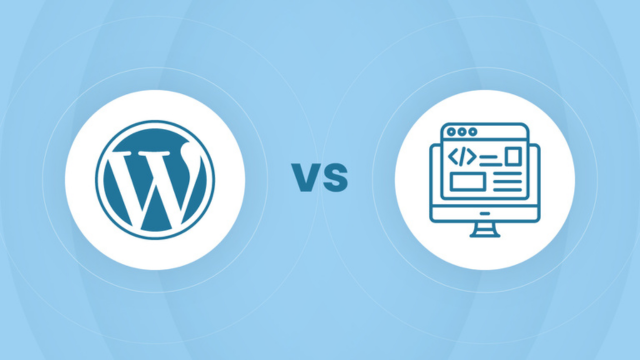Laravel vs WordPress – Which is Best for Your Next Website?

Choosing the right platform is the first and most crucial step in building a successful website. Two of the most popular choices are Laravel and WordPress — but which one is right for your project?
In this guide, we’ll break down the key differences between Laravel and WordPress based on performance, security, SEO, customization, and scalability — so you can make a smarter business decision.
1. What is WordPress?
WordPress is a user-friendly content management system (CMS) that powers over 40% of all websites globally. It’s best for blogs, small business websites, and content-heavy platforms that require quick deployment.
2. What is Laravel?
Laravel is a modern PHP framework used for custom web applications. It gives developers complete control over code, making it ideal for complex systems like CRMs, booking engines, eCommerce platforms, and enterprise dashboards.
3. Performance & Speed
Laravel offers faster performance because it doesn’t rely on heavy plugins. WordPress sites often slow down due to plugin bloat. Laravel apps are lightweight, optimized, and easily scalable with advanced caching options.
4. Customization
With Laravel, every feature is custom-built. You’re not limited by themes or plugins. WordPress offers quick setups but customization becomes difficult and risky as plugins pile up.
- ✔️ Laravel: 100% custom control
- ✔️ WordPress: Plugin/theme dependent
5. Security
Laravel provides better built-in security features like CSRF protection, data validation, and secure authentication systems. WordPress, being open-source and plugin-heavy, is a frequent target for hackers.
6. SEO and Structure
Both platforms can be SEO-friendly. WordPress has plugins like Yoast SEO, while Laravel allows complete control over meta tags, schema, clean URLs, and speed optimization — key Google ranking factors.

7. Maintenance & Updates
WordPress requires regular plugin/theme updates, and conflicts may arise. Laravel needs professional maintenance but is more stable and predictable for long-term projects.
8. Use Case Comparison
- Choose WordPress if: You need a simple site, blog, or small business website with quick deployment.
- Choose Laravel if: You need full customization, advanced features, or want to scale without limits.
“If flexibility, performance, and long-term value are priorities — Laravel is the future-ready choice.”
Conclusion
There’s no one-size-fits-all answer. But knowing your project goals helps you pick the right tool. Laravel offers unmatched customization and performance, while WordPress is ideal for quick and simple builds.
Still confused? Let’s discuss your business needs and choose the right solution together. Message me on WhatsApp.





